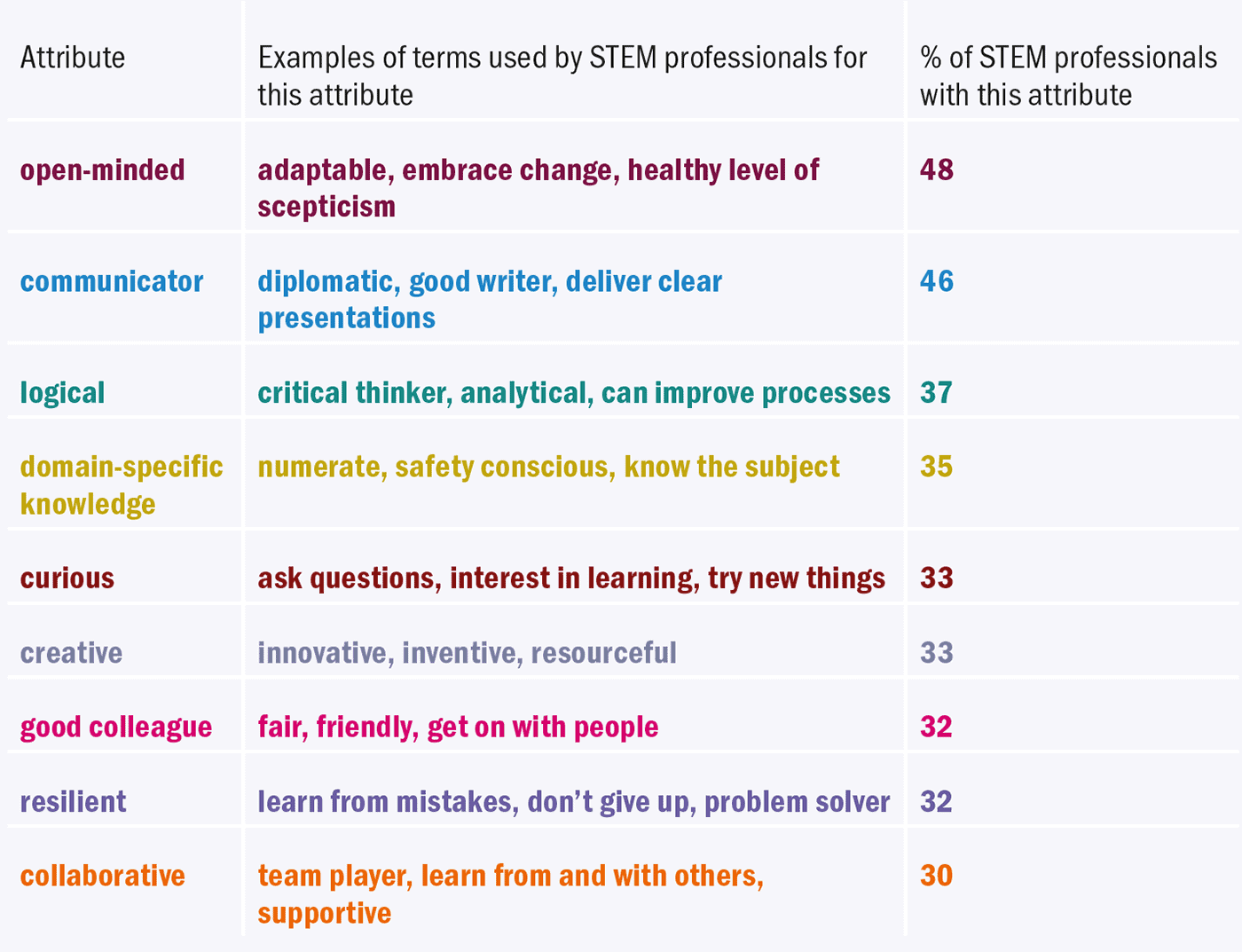Carol Davenport explains why soft skills are as essential as technical knowhow when it comes to a successful career in physics

Applying for a job, a placement or an internship can be a challenging and stressful task. Even if you’re successful, you’ll still have to face an interview, where a potential employer will hope to quickly appraise your talents and abilities. Of course, your technical prowess is indispensable, but you’ll need much more than scientific knowledge to secure the position.
That’s because today’s employers are looking for a host of additional skills to determine how you will fit into their workplace. From being able to manage your time and sort out conflict to knowing how to communicate, these so-called “soft skills” are as important as your subject-specific knowledge that you developed during your degree.
The “hard” skills you gained while studying – whether it’s knowing how to solve a differential equation or line up mirrors on an optics bench – are easy to provide evidence for, from the modules you took or the lab work you did. But the other more nuanced and practical skills – such as presenting in front of your peers, writing reports or keeping to deadlines – are just as crucial. After all, they show how you work with others, how you communicate and how you organize yourself.
Developing and understanding how your practical experiences have already led you to build these skills is an important step in your career planning and job hunting. Despite being categorized as “hard” or “soft”, both of these skill sets are invaluable when it comes to your employability. If you’ve worked part-time in the hospitality industry, for example, and had to communicate effectively with an irate customer, you’ll know that it definitely isn’t easy to use soft skills.
And just in case you don’t believe that soft skills are really that important for a career in physics, just look at a recent job advert for an applied laser physicist at the UK defence company AWE that I spotted on Physics World Jobs. The company said it was looking for candidates to have the following attributes, where the first three are hard skills and the last two are soft skills:
- A degree in physics
- Some experience of working with lasers or optics in an undergraduate laboratory setting would be advantageous
- Experience conducting empirical scientific research and drawing sound conclusions
- Ability to plan and manage the delivery of own work
- Ability to work as part of a team with a range of stakeholders
As a former physics teacher and now director of NUSTEM, an outreach and research group at Northumbria University in the UK, I regularly help schools showcase careers in science, technology, engineering and mathematics (STEM) subjects to young people. We often talk about soft skills that people who work in STEM require. And as a recent student or graduate, you should think about which of these skills you may already have developed. You might surprise yourself. At Northumbria, for example, we feature a “STEM Person of the Week” – a short profile that showcases three attributes that are important to that person’s success in their job. These profiles, we hope, will help students to identify where they might have demonstrated such qualities themselves.

To further support our work at NUSTEM, we recently undertook a research project to look into the skills and attributes that people who work in STEM have. We already had a list of 16 skills (see graphic above), that we developed using previous research into employability skills and in collaboration with teachers and the Institute of Physics, but we wanted to find out what qualities STEM professionals would think were important, and if they matched the ones we used.
Using an online survey, we asked more than 200 STEM professionals from across the UK – including physicists, engineers, data scientists and technicians – to note six key attributes that they felt were essential to being successful in their job. We then looked at all of the terms and grouped them into broader categories. The table below shows the attributes given by at least 30% of the STEM professionals.

Looking at these nine attributes, there are just two that could actually be categorized as hard skills: logical and domain-specific knowledge. All of the rest are soft skills. When looking more broadly, our analysis identified 19 attributes in total: 13 are soft skills, four are hard skills and two are a combination of both.
These attributes are ones that STEM professionals think help make them successful in their jobs, which brings us back to job applications. Imagine you’ve applied for the laser physicist role mentioned earlier and got an interview. You may be asked something like “Can you give me an example of a project or situation where you’ve had to work as part of a team, and how did you contribute to the effectiveness of the team?” Well, if you’ve collaborated on a group project then that shows teamwork, and if you’ve already reflected on those attributes, you’ll be able to answer the question more easily and in detail.
Case studies
Recently, I asked two physics undergraduates to look at the original 16 NUSTEM attributes and consider which three they thought they had developed most during their degree so far.
Bethany Willis – who has completed a BSc (Hons) in physics at Northumbria University and is about to start a PhD in product-integrated photovoltaics – chose:
Committed A degree is a long-term commitment and parts of it are long, hard, boring or difficult. You need to be motivated and try your hardest to get the best out of your education and you sometimes end up enjoying the things you didn’t previously like.
Tenacious Physics can be complicated at first and being tenacious means you are able to overcome any challenges that come your way. This could be problem-solving or even working on a longer project.
Communicator In physics it is important to share your ideas and inspire others. This is why being a good communicator is important – particularly for tutoring other students or doing outreach and motivational presentations in public.
Rosie Wainwright – a 3rd year BSc (Hons) student in physics with astrophysics at Northumbria University – chose different attributes:
Passionate I would say that my passion has developed throughout my degree. As my knowledge has grown, I have enjoyed becoming more enthusiastic to obtain a greater understanding of physics.
Logical I believe I have become more logical because of the work my degree has required so far, and that the evolution of this attribute is helping me with my degree as it progresses. It is now a strong attribute as I find myself better at managing and solving problems in calmer and more successful ways in most aspects of my life. I find this an invaluable skill to have developed.
Hard-working I’ve found hard work is an essential attribute in my degree. Working consistently with maximum effort means that more is achievable and more success can be found. Working hard is enjoyable to me when it is related to what I find interesting. This is why it has thrived within my degree and I like to think working hard is becoming a general attribute of mine.
The good news is that you can improve such soft skills just as you can get better at analysing data or implementing good health and safety practice. You can identify an attribute you’d like to develop – such as your communication skills – and try to find situations where you could develop it. Perhaps by volunteering to provide verbal feedback during a group task. It doesn’t always have to be during your studies; it could be in your social activities or part-time job.
Have a look at the NUSTEM attributes and reflect on which ones you already have used during your degree, and which ones you could develop. You’ll then have great examples to use in application forms and interviews – and hopefully line up the dream job you’ve been after.
